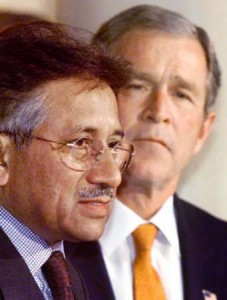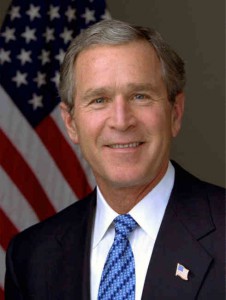I've surely got be the world's worst blogger, to have yet written nothing here on Minor Thoughts about the recent kidnapping (and release) of twenty-three Korean missionaries in Afghanistan.
After all, not only have Joe and I always given over the majority of our attention here to politics, economics, and that portion of God's kingdom which extends onto this Earth, the Church, but (a) I personally am living in South Korea right now and (b) have relatives of my own living in Afghanistan. Throw in my own associations with a number of missionaries and one might justly suspect, considering I am that obnoxious kind of people perfectly willing to offer his unsolicited opinion on just about anything, that the hostage situation would receive at least a mention.
But during such crises, there's very little one lone lil' blogger can say that isn't being said everywhere else. The very point of the blog-o-sphere (that's still what the kids are calling it these days, right? I told you I'm out of touch) is, after all, the opportunity it presents to receive alternative perspectives generally unavailable from the mass media - that is, we no longer need to be told by news corporations what your typical man on the street thinks, because the man on the street is basically running his own newspaper, and what he thinks is sometimes far more interesting than previously reported, even if his presentation is inferior. Republican radio shows in the U.S. became popular for the same reason.
The aftermath of the Korean hostage situation suggests far more interesting questions.
That's 'cause, as Reuters has recently noted, the nineteen Korean missionaries recently released by Afghani terrorists haven't exactly received a hero's welcome home. Oh, the Korean people are glad their brothers and sisters are safe, sure, but they still have a bone to pick; their complaint is that twenty-two people foolishly put themselves in an extremely dangerous situation and as a result, Korea itself (and the Afghani reconstruction effort) paid the price - being forced (a debatable term, yes) to deal with terrorists to insure their recovery.
"This crisis [has] raised grave questions about the divide between the country's responsibility and the responsibility of individuals," JoongAng Ilbo, a large Korean newspaper, has grimly muttered.
Indeed it has - but they're questions with fairly obvious answers. As countries all over the world have embraced populism and rejected (if only rhetorically, in many cases) the concept of absolute rule by the few, the notion has naturally evolved that any citizen - and not just royal and government officials - who gets in trouble overseas deserves rescue by his or her government.
On any sensible review, however, that's a ridiculous premise. First of all, making all men equal, one must remember, does not always mean elevating every man to the level of importance once accorded kings; often it means simply knocking the kings themselves down a few pegs, to a lower level on par with their brothers and sisters. Nation-states of old paid high ransoms for captured kings and the like because the citizens of those nation-states believed those people were divinely chosen to rule, or simply were gods themselves. If someone captures a god, it's important to the whole country to get him or her back. The disappearance of one man who knowingly left the safety of his country for private reasons is far less worth negotiations with extremists, especially when those negotations may have real consequences for every other citizen of his country (Koreans are now banned from entering Afghanistan; all of them have lost their freedom to travel there on any business).
Of course, any government employee sent into a foreign country by his or her superiors should rightfully expect as much assistance as possible, should trouble come; such officials are their fellow citizens' official representatives, speaking (or killing, or whatever) in their name. But missionaries arrive at their destinations as representatives only of the Kingdom of Heaven.
Let men and women such as the captured Koreans go forth and spread the Gospel, then, but let them not burden their brothers and sisters - who asked for no part in the holy mission - with the fallout from their actions. From a pragmatic standpoint, there is no compelling reason today why the kidnapping of any citizen should lead to negotiations with the kidnappers. No person is worth it.
Nor can the government - and by extension, every citizen in a country - afford to clean up after the missteps of those who voluntarily risk themselves for religious, political, or personal reasons. Logically, the adoption of that unfair weight should not even be a consideration; it's a mismatch with any government's purpose, which is to supervise the specific, limited geographic area in which its citizens reside.
This brings us to a second point, which is an answer to the obvious moral appeal: "But isn't any life worth saving, even if it's costly, and even if the person brought it on himself or herself? What, should a government just leave someone to die?"
Well, leaving aside the evident fact that many lives would probably not be in such danger if their governments didn't keep negotiating with kidnappers, the harsh but just responses are "no" and "Why should that be the government's job?". We make decisions concerning how much a life is worth every day; if we lowered every speed limit in America to 5MPH, we'd have a lot less traffic-related death, but nobody suggests it would be worth it. And why should the government, charged with representing the interests of all, allow its policies for all to be swerved because of an unnecessary risk knowingly taken on by one of its citizens?
Korea's caving in to terrorist demands was a mistake, as are the preventative measures it's introduced in hopes of never seeing the situation repeated.
The line between personal and national responsibility should be clear: it's the border line.

